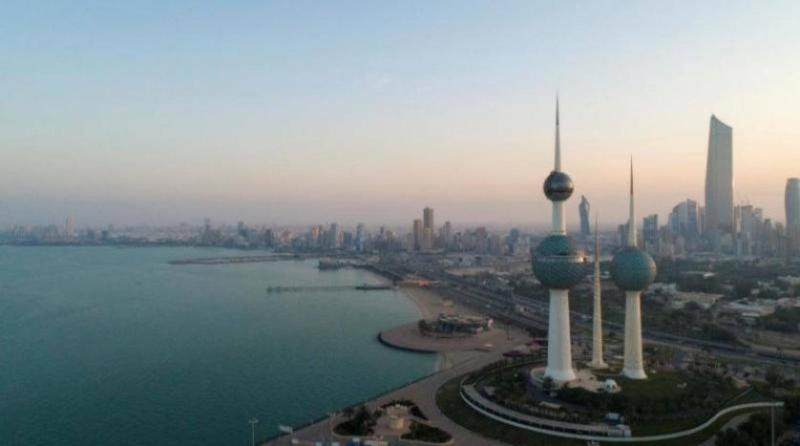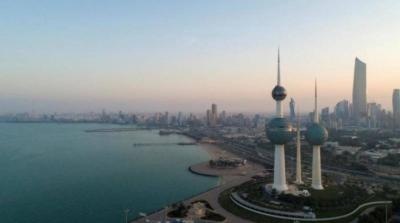By coincidence, both Kuwait and the United States are experiencing different waves of the quest for victory in their national elections. Kuwait is currently engaged in national elections, while discussions intensify in the United States between the Democratic and Republican parties as they prepare for the presidential elections scheduled for the first week of November, seven months from now. What concerns us in Kuwait is to reaffirm the continuity of the strategic partnership between us and the United States, as the content of this partnership secures most aspects of life, including security, defense, trade, education, investment, tourism, and diverse dialogues administered by a joint committee comprising senior specialists and officials from both countries, meeting regularly to ensure the activation of all pathways and the commitment to their outcomes.
While countries around the world are monitoring the trends of nominations in the United States, we in Kuwait are among the most keen observers, analyzing and striving to understand the identity of those voices that express opposition to U.S. foreign policy and criticize its commitments and collaboration with less developed regions and most countries worldwide in security, trade, and technological cooperation.
We feel reassured with the Democratic Party's directions and are aware of the current candidate's positions, President Biden. However, we also remember the efforts of the Republican Party's candidate in the last elections, Mr. Trump, who served as president and lost the second round to Biden. Former President Trump did not hesitate to express his discomfort with the scale of U.S. foreign responsibilities, regarding its relations with Europe and NATO and its alliances with East Asian countries, particularly Japan and Korea. This led him to hold several meetings with North Korean leaders, envisioning the possibility of influencing a reduction in its nuclear arsenal. Clearly, the perspective of Gulf-American relations does not bring him comfort, as it involves strategic American commitments, some broad in scope and others limited to defense and security issues. Candidate Trump sees this interconnectedness as something that burdens him, viewing it as an additional weight better to withdraw from, allowing Gulf states to seek to compensate for the American absence.
This sentiment is discomforting to us, raising concerns about security exposure, and our painful experiences underline the necessity of a robust deterrent presence. If national elements are not available to fulfill deterrent conditions, there is ample room to contemplate alternatives. The heinous invasion of Kuwait cannot tolerate a lack of deterrent that curbs provocations and possesses the means for harm and destruction.
Kuwait-U.S. relations evolved since Washington's adoption of Kuwait's liberation, orchestrated through a global coalition of 34 countries hosted and diligently managed by Saudi Arabia. The invasion reinforced the certainty of the necessity of a deterrent force that ensures the country's independence, preserves its sovereignty, and guarantees reassurance for its citizens. Kuwait's history confirms that this stability and assurance are sources of its uniqueness, as seen during the British protectorate years, where Kuwait's maritime presence flourished with India and East Africa, producing the most beautiful and largest ships, which ensured Kuwait's endurance and stability during the two World Wars.
Post-liberation Kuwait is not the same as the one we coexisted with before the invasion. Changes have altered the map of Kuwaiti diplomacy, and for the first time since independence, we have strategic partners linked to the Kuwaiti way of life, not just allies in security but in all pathways, especially in investment, trade, culture, diplomacy, and technological benefits. In our bilateral relations with Britain, cooperation pathways for investments and joint dialogues involving several relevant ministries emerged, and this organization applies similarly to relations with the United States. The dialogue with the U.S. still requires intensification and expansion to encompass not only security, economy, and education but also technology, tourism, culture, and exchange visits by Kuwaiti civil society organizations to convey truths to the American people, including an appreciation of the American role in liberating Kuwait and Kuwait's determination to enhance interconnectedness in all fields.
In the past, American elections did not pique our interests. The U.S. trajectory toward the region was clear; its link with Israel remained unchanged, as did its strategic relationships with Jordan, Egypt, and Gulf states. The outcome of elections did not vary significantly among candidates, until the arrival of President Trump, who raised questions regarding American sacrifices in various regions of the world, including the Gulf, which contradicts the reality of relations between Washington and the Gulf, failing to account for the enormous and diverse historical American interests. He does not see what justifies the substantial costs borne by the U.S. to maintain Gulf security. Additionally, he views the presence of energy resources in the Gulf as unconvincing for America's continued presence, as energy is a commodity available in global markets.
As we monitor the development of the electoral landscape, we must remember that we are not the only ones observing the changing electoral programs proposed by both parties and their impact on various countries—friends, allies, adversaries, and neutrals alike. The United States has a presence in every corner of the world, from East Asia to the Middle East, Europe, and the oceans. There is no member of the United Nations unaffected by developments in Washington. However, the differences lie in the effective presence and active roles of each nation in Washington, ranging from political, commercial, and cultural engagements to intensifying visits and arrangements focused on security or collective linkages, as seen with Europe and Japan, and even the surveillance of nuclear weapon developments searching for their secrets.
In Kuwait, we have not responded adequately to the coalition's demands for diversified and sustained involvement in most aspects of politics, defense requirements, and political dialogue, nor have we maximized relations between the popular assemblies. We have settled for what politics and defense issues provide, despite the urgent need for cultural exchanges and educational matters concerning institutions and renowned universities.
I conclude by recalling the importance of engagement with American legislative bodies, the Senate and the House of Representatives, which is essential for anyone seeking to build an effective collective communication with the ruling institutions in Washington. In the early years of the Gulf Cooperation Council, I would visit Washington annually, and the Arab-American Relations Council contributed to organizing meetings and sharing insights drawn from experiences in Arab capitals, particularly Riyadh, which is active in fostering mutual understanding and strengthening Washington's appreciation for the constructive role of the Gulf Cooperation Council in the Arab world and globally.
We will continue to follow the developments of the American electoral process until the end of the first week of November... and we hope for the best.




